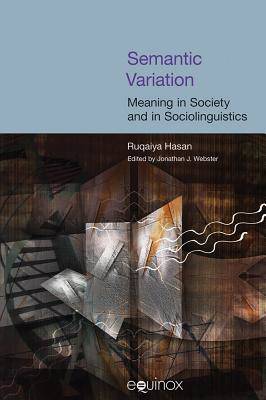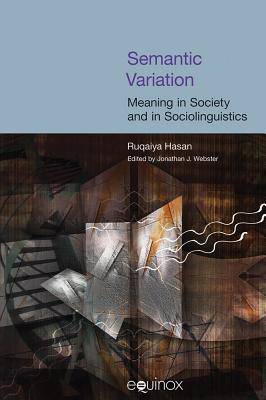
- Afhalen na 1 uur in een winkel met voorraad
- Gratis thuislevering in België vanaf € 30
- Ruim aanbod met 7 miljoen producten
- Afhalen na 1 uur in een winkel met voorraad
- Gratis thuislevering in België vanaf € 30
- Ruim aanbod met 7 miljoen producten
Zoeken
Omschrijving
The sociolinguistic turn of the 1960's has been remarkably successful: variability of language is no longer an issue open to debate. But studies of variation have by and large been restricted to the level of expression. This volume makes a contribution to a neglected area in sociolinguistics, namely variation at the level of meaning, i.e., semantic variation. The chapters in this volume discuss the results of an empirical research strongly supporting the view that systematic variation in the choice of semantic elements occurs across different social strata: mothers and their young children less than four years old showed a highly consistent, statistically significant, orientation to distinct styles of meaning, which correlated with their social positioning. The comparison of kindergarten teachers' ways of meaning with those of mothers', not surprisingly, reveal that teacher talk is an exaggerated version of middle class mothers' talk. Findings of this research are relevant to any serious discourse about equitable education.
Specificaties
Betrokkenen
- Auteur(s):
- Uitgeverij:
Inhoud
- Aantal bladzijden:
- 497
- Taal:
- Engels
- Reeks:
Eigenschappen
- Productcode (EAN):
- 9781904768357
- Verschijningsdatum:
- 1/09/2009
- Uitvoering:
- Hardcover
- Formaat:
- Genaaid
- Afmetingen:
- 155 mm x 234 mm
- Gewicht:
- 884 g

Alleen bij Standaard Boekhandel
+ 261 punten op je klantenkaart van Standaard Boekhandel
Beoordelingen
We publiceren alleen reviews die voldoen aan de voorwaarden voor reviews. Bekijk onze voorwaarden voor reviews.











